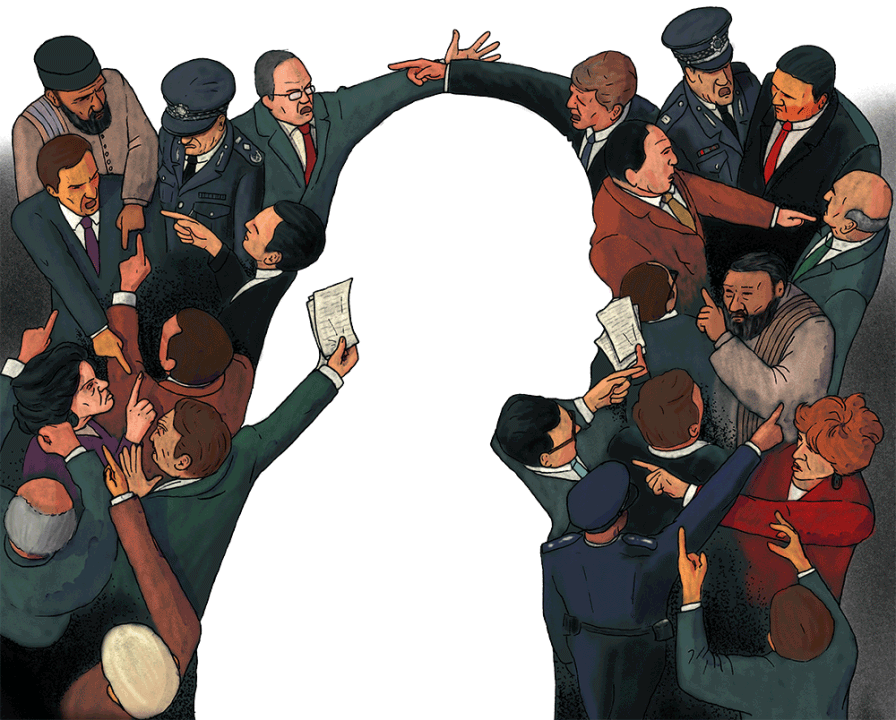At this stage we can’t predict what the government’s new grooming gangs inquiry will say. But one thing is overwhelmingly likely: many will feel the heat. This includes police who stood back in the face of clear patterns of child sexual exploitation by young Pakistani men to avoid racial tension; social workers desperate not to offend their largely unassimilated Muslim clients; and councillors and politicians who said ‘move on, nothing to see here’ because of fears that Muslim voters might disown anyone who rocked the multicultural boat.
With few exceptions, academics were some of the keenest to suppress discussion about groooming gang abusers’ origins or ethnicity
Even more interesting, however, is the light all this this has thrown on academia. With few exceptions, academics were some of the keenest to suppress discussion about the abusers’ origins or ethnicity. Any reference to this, it was constantly said, risked spreading anti-Muslim racism, distracting attention from more important problems, ‘racialising crime’, ‘“othering” South Asian men’ and characterising them as ‘folk devils’. Paper after paper, seminar after seminar, was devoted to pushing variants on these themes.
At first sight this looks odd. Police and social services at least had an incentive to make their jobs easier; so too politicians anxious about their voter base. But academics with no skin in this game? Why should they engage so hard in support of one side?
Partly, one suspects, this may be due to the university environment. Ten years ago, a survey found 77 per cent of academics backed Labour, the Lib Dems or the Greens. Only 11 per cent were for the Tories. Today, the figure is possibly even more skewed. This doesn’t just mean many academics are instinctively likely to support an approach based on racial identity politics. More seriously, all articles have to be peer reviewed. Peer reviewers within the humanities professoriate are only human. With the best will in the world, one suspects an article trying to minimise the relevance of ethnicity in favour of other factors is likely in practice to get an easier ride.
But there is more to it than this. Few admit it, but there is something of a Faustian pact between universities and their state funders and providers of research grants, built on the fiction that in the humanities as much as in traditional sciences the state is investing in cutting-edge advances in knowledge. As a result, today’s humanities academics, especially young ones with careers to make or lose, are pressured not only to produce more papers, but also to make their publications ‘innovative’, and in addition to strive for what is referred to as ‘impact’, a somewhat protean term that essentially means getting noticed by the great and the good. There are, put bluntly, big brownie points in getting called before a parliamentary committee or quango.
The resulting incentive is baneful and perverse. Far from encouraging people to take a sober look at subjects like the sex grooming figures in Rochdale or Oldham and propose low-key, possibly unpalatable, measures to deal with them, the ambitious academic is much better advised to take a different, radical, line – indeed, the more radical the better. Much more attractive to university managers is the construction of new narratives based on theories of the impact of systemic racism or racist media, or on abstract notions of the ‘othering’ of particular groups. And there is the bonus that if you have radical ideas you’re more likely to gain impact by being invited to address that parliamentary committee.
This isn’t necessarily to criticise the academics concerned. As often as not they have little choice but to promote their increasingly abstract and abtruse theories (many of which are intellectually dodgy owing to their tenuous link with empiricism and regular adoption of incomprehensible and conclusory jargon, but that’s another story). But this phenomenon does have one very important result.
Fifty years or so ago academics commanded a natural respect. If a professor pronounced on a social problem, with a few exceptions what they said was probably understandable to a layperson, soundly anchored in empiricism, and demonstrative of common sense. This was what made people take notice and take what they said seriously.
Today, academics increasingly sound like just another part of the progressive commentariat, albeit with an annoying habit of unashamedly using increasingly esoteric words and, when challenged, insisting that it’s not surprising we can’t understand their high-powered science.
That is their right. But there is also another side to this. If academics go down this road, they have little if any right to respect for their opinionated ramblings, and no particular claim to be listened to by government. We can only hope that the members of the grooming gang inquiry have the good sense to keep this in mind, and treat the earnest pronouncements of the new professoriate with the pointed scepticism they deserve.







Comments